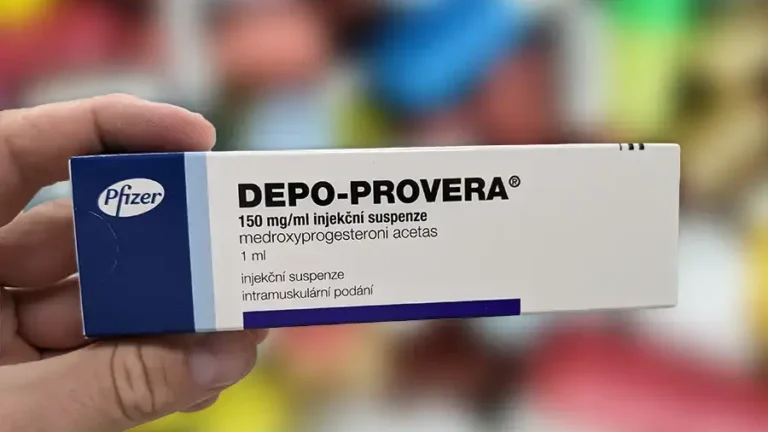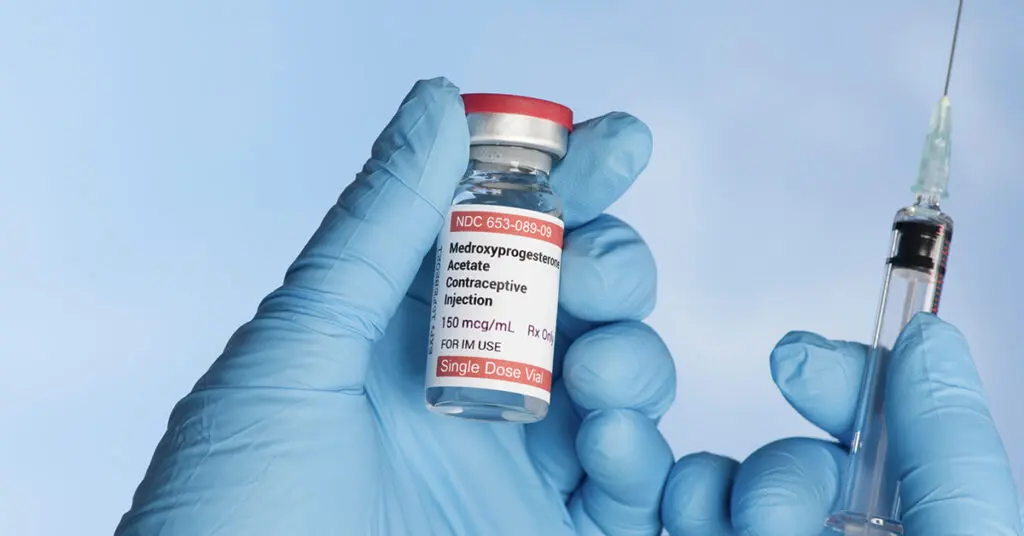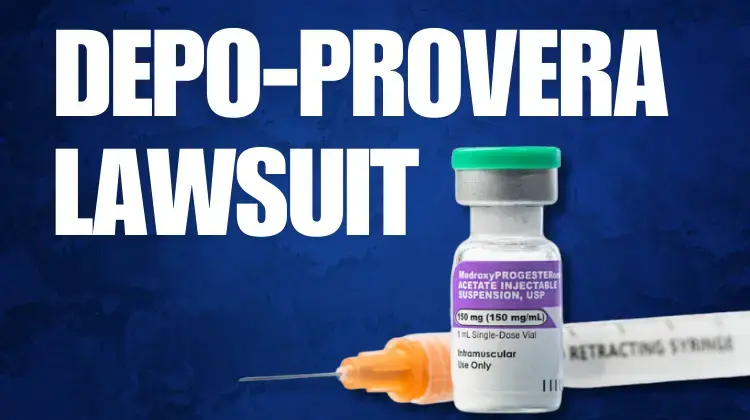
What Is the Depo Provera Lawsuit?
The Depo Provera Lawsuit has drawn attention from women across the country who received the contraceptive injection and later experienced health issues. This legal action centers on claims that the drug manufacturer failed to adequately warn patients about serious side effects, including decreased bone density, irregular menstrual cycles, and potential fertility concerns. Plaintiffs argue that their quality of life has been significantly impacted, citing extensive medical treatments, lost wages due to ongoing therapy, and emotional distress stemming from these complications. Since its approval by the Food and Drug Administration decades ago, Depo-Provera has been prescribed as a long-acting birth control method due to its convenience and efficacy. However, emerging research and patient testimonials have raised questions about the safety profile of the product, prompting attorneys to file the suit on behalf of hundreds of individuals. The case has already led to pretrial motions, class certification hearings, and ongoing discovery as both sides gather evidence. As details unfold, many women are monitoring developments closely to determine if they too might be eligible to join the proceedings.
Depo-Provera functions by releasing progestin to prevent ovulation, offering a convenient option for individuals seeking long-term birth control without daily pills. Despite its popularity, medical experts stress the importance of understanding the risk-benefit balance. Patients considering this treatment are encouraged to discuss their bone health, family planning goals, and medical history with their healthcare provider before proceeding. Comprehensive informed consent can help ensure that individuals are aware of potential outcomes and can make empowered decisions about their reproductive health.
Understanding the Depo Provera Lawsuit Claims
Many plaintiffs in the Depo Provera Lawsuit allege they suffered significant bone density loss, menstrual irregularities, and other long-term complications after using the medication. These individuals report experiencing symptoms such as severe joint pain, fatigue, and unexpected changes in menstrual patterns, which they attribute directly to the hormonal injection. Expert medical testimony is being gathered to establish causation and to evaluate whether the company adequately communicated known risks to prescribing physicians and patients.
Additionally, some claim that the manufacturer failed to conduct sufficient long-term studies prior to releasing the drug to the market. As a result, a growing number of former patients are coming forward with similar stories, strengthening the argument that the risks were underreported. The litigation also examines marketing materials and internal communications to assess whether warnings were minimized in promotional campaigns.
From a legal standpoint, product liability statutes require manufacturers to provide clear instructions and warnings for any known adverse effects. When claims of negligence or breach of warranty arise, courts evaluate whether the information available at the time was sufficient to protect consumers. Similar lawsuits involving pharmaceutical products have resulted in significant verdicts and settlements, setting precedents that may influence the current proceedings.
Key Allegations in the Depo Provera Lawsuit

Attorneys handling the Depo Provera Lawsuit are focusing on allegations that the manufacturer failed to adequately test the drug and neglected to warn patients of serious side effects. Plaintiffs assert that internal research identified risks such as bone mineral density reduction and potential impacts on fertility, but these findings were not sufficiently communicated through labeling or direct-to-consumer advertisements. As evidence is exchanged during discovery, memos and email chains may reveal the depth of corporate knowledge about these dangers.
In addition to inadequate warnings, there are claims that post-market surveillance was insufficient, delaying recognition of emerging adverse event reports. Experts in pharmacovigilance are reviewing global safety databases to chart the timeline of reported incidents, seeking to establish a pattern that could demonstrate negligence in monitoring and reporting responsibilities.
Regulatory agencies like the FDA and EMA require ongoing safety assessments for approved medications. When adverse event rates exceed expected thresholds, companies must take corrective actions, including updating labels or issuing safety communications. Failure to do so can expose them to legal liability, as seen in prior cases involving hormone-based therapies and other long-acting drugs.
Potential Compensation in a Depo Provera Lawsuit

Class action status could impact the Depo Provera Lawsuit by consolidating claims and potentially increasing settlement value for affected individuals. When grouped together, plaintiffs may benefit from shared resources, streamlined discovery, and coordinated representation, leading to more robust negotiation power. Compensation may cover medical expenses, lost wages, pain and suffering, and punitive damages if egregious conduct is proven.
Moreover, a favorable outcome in collective litigation can influence global regulatory standards, prompting label revisions and stronger patient advisories. Successful claimants might also access future medical monitoring funds to address late-emerging health issues tied to the treatment.
In individual cases, damage awards vary based on the severity of injuries and documented losses. Courts assess the extent of harm, the defendant’s conduct, and applicable legal precedents. Settlements often include structured payment plans and non-monetary provisions such as fund creation for research into safer contraceptive options.
How to Join a Depo Provera Lawsuit
Statute of limitations deadlines are crucial for filing a Depo Provera Lawsuit; individuals should consult legal counsel as soon as possible to preserve their rights. Attorneys often offer free case evaluations to determine eligibility based on factors like the date of injection, documented health complications, and medical records. Prompt action ensures that critical evidence is secured and witness memories remain fresh.
Law firms specializing in pharmaceutical litigation typically maintain dedicated intake teams to guide prospective plaintiffs through the process. They assist in gathering documentation, communicating with healthcare providers, and submitting formal complaints to the court. Early participation can also allow individuals to influence case strategy and settlement negotiations.
When selecting legal representation, look for firms with a proven track record in mass tort or product liability cases. Reviews from former clients, peer recognition, and past verdicts offer insights into a firm’s capabilities. Additionally, transparent fee structures and clear communication are essential for managing expectations throughout the litigation.
Timeline of the Depo Provera Lawsuit

Experts say the outcome of the Depo Provera Lawsuit may influence future labeling requirements and medical guidelines for long-acting contraceptive injections. Key milestones include initial filing, motions to dismiss, class certification hearings, discovery phases, expert depositions, and potential settlement conferences or trial dates. Each stage can span several months to years, depending on court schedules and procedural complexities.
Initial complaints were reportedly filed in multiple jurisdictions, leading to consolidation under multidistrict litigation in federal court. This coordination aims to reduce duplicative discovery and ensure consistent rulings on pretrial motions. Class certification, if granted, will determine whether all eligible claimants can proceed collectively or must pursue individual actions.
After discovery, parties often engage in mediation or settlement talks. If negotiations fail, the case proceeds to trial, where juries may evaluate evidence and determine liability. Even if a trial verdict is rendered, appeals can extend the timeline further. Throughout, developments are closely monitored by stakeholders, including healthcare professionals, patient advocacy groups, and industry observers.
Conclusion
For individuals who believe they have experienced adverse health effects after receiving Depo-Provera, understanding the legal landscape is the first step toward seeking justice. While this case unfolds, potential claimants should gather relevant medical records, stay informed about court developments, and consult experienced attorneys.

